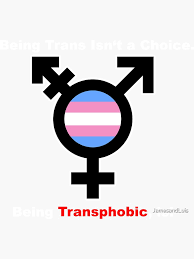Testosterone and estrogen are two crucial hormones in the body that play significant roles in health and well-being. While they are often associated with their respective genders—testosterone as the "male" hormone and estrogen as the "female" hormone—the truth is that both hormones are present in everyone, regardless of gender. A common question that arises is whether testosterone can convert into estrogen. This article delves into the relationship between these two hormones, examining how testosterone can turn into estrogen and the implications of this conversion on health.
What’s the Deal with Testosterone and Estrogen?
Testosterone is primarily known for its role in the development of male characteristics, such as muscle mass, bone density, and body hair. It plays a crucial role in regulating libido and overall energy levels. On the other hand, estrogen is often associated with female reproductive health, but it’s essential for both men and women. In men, estrogen helps regulate certain bodily functions, including mood, libido, and fat distribution.How A Man Can Grow Breasts Without HormonesHigh Estrogen Symptoms In Males
While testosterone and estrogen are often viewed as opposites, they actually work together in a delicate balance. Too much testosterone can lead to an increase in estrogen levels, which can create various health issues. Understanding the dynamics of these hormones is key to maintaining overall hormonal balance, which is vital for physical and emotional well-being.
How Testosterone Converts to Estrogen in the Body
The conversion of testosterone to estrogen occurs through a process called aromatization. This process involves the transformation of testosterone molecules into estrogen molecules. Think of it as a chemical makeover where testosterone, a powerful hormone, gets a slight tweak that changes its function. This conversion is part of a natural hormonal balance that occurs in both men and women.
The rate of this conversion can vary based on several factors, including age, body composition, and lifestyle. For instance, as men age, testosterone levels naturally decline, and the relative proportion of estrogen may increase if not kept in check. This can lead to various symptoms associated with hormonal imbalance, making it essential to monitor these levels throughout life.
The Role of Aromatase: The Key Enzyme Explained
The enzyme responsible for converting testosterone to estrogen is called aromatase. Aromatase is found in various tissues throughout the body, including fat tissue, brain, and the testes. This enzyme plays a pivotal role in the aromatization process, ensuring that there is a regulated amount of estrogen in the body.
In men, higher levels of body fat can increase the activity of aromatase, leading to more testosterone being converted to estrogen. This is one reason why weight management is so crucial for hormonal health. By keeping body fat in check, men can help mitigate excessive estrogen production and maintain a better hormonal balance overall.
Why Do Men Need Some Estrogen Anyway?
Despite its reputation as a "female" hormone, estrogen is vital for men too. It helps maintain bone density, supports cardiovascular health, and plays a role in regulating libido. A balanced level of estrogen can also influence mood and cognitive function, highlighting its importance beyond reproductive health.
Too little estrogen, like too much, can lead to problems. Low estrogen levels in men can result in increased risk of osteoporosis, decreased libido, and even mood disorders. Therefore, having some estrogen in the body is essential for overall health, and it’s crucial to maintain an optimal balance between testosterone and estrogen.
Signs of High Estrogen Levels in Men
When estrogen levels become too high in men, it can lead to a myriad of issues. Common signs include increased body fat, particularly around the abdomen, gynecomastia (enlarged breast tissue), and mood swings or irritability. Men might also notice a decrease in libido or erectile dysfunction, which can be distressing and impact relationships.
Additionally, high estrogen levels can lead to fatigue and reduced motivation. It’s essential to be on the lookout for these signs and take note if they seem to arise suddenly or become persistent. Addressing hormonal imbalances early can prevent more severe health issues down the line.
Can You Control Testosterone to Estrogen Conversion?
Yes, to some extent, you can control the conversion of testosterone to estrogen. Lifestyle choices play a significant role in regulating hormone levels. Maintaining a healthy weight, engaging in regular physical activity, and following a balanced diet can help manage aromatase activity. Reducing body fat, especially in the abdominal area, can limit estrogen production, as adipose tissue is a significant site for aromatase activity.
Additionally, managing stress levels through mindfulness techniques or exercise can also positively influence hormone levels. Chronic stress can lead to imbalances in hormone production, making it crucial to adopt healthy lifestyle habits that promote overall well-being.
Supplements and Tips to Balance Hormones Naturally
There are several natural supplements and lifestyle tips that can help maintain a healthy hormonal balance. For instance, zinc and magnesium supplements have been shown to support testosterone levels. Additionally, consuming foods rich in omega-3 fatty acids, such as fish, can help reduce inflammation and may positively influence hormone levels.
Incorporating cruciferous vegetables like broccoli and kale into your diet can also aid in estrogen metabolism. These foods contain compounds that support the body’s natural detoxification processes, potentially helping to keep estrogen levels in check. Always consult with a healthcare professional before starting any new supplement regimen to ensure it’s safe and appropriate for your individual needs.
When to Consult a Doctor About Hormone Levels
If you’re experiencing symptoms of hormonal imbalance, such as fatigue, mood swings, or changes in libido, it may be time to consult a doctor. An endocrinologist or a healthcare provider knowledgeable about hormone health can conduct tests to assess your testosterone and estrogen levels.
Regular check-ups become even more critical as you age or if you have pre-existing health conditions. Early detection of hormone imbalances can lead to more effective treatment options, helping you maintain optimal health and a better quality of life.
Understanding the relationship between testosterone and estrogen is crucial for both men and women. While testosterone can indeed convert to estrogen, maintaining a balance between these hormones is key to overall health. By adopting a healthy lifestyle, keeping an eye on your symptoms, and consulting with a healthcare provider when necessary, you can take charge of your hormonal health. Remember, a little knowledge goes a long way in supporting your well-being.


